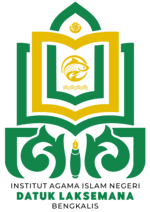Model Pendidikan Keluarga Perspektif Al-Quran Sebuah Kajian Kontemporer dalam Surat Al-Isra ayat 23-24
DOI:
https://doi.org/10.56633/jkp.v19i2.629Keywords:
Education, Family, Al-Qur'an, ContemporaryAbstract
Education is considered the most influential effort in changing individual and societal behavior. Education is considered an effective social tool in shaping society in the future. Research reveals the Family Education Model in the Al-Quran, Study of Surah Al-Isra' (A Study in the Contemporary Era). For this reason, the main data that will be searched for are verses from the Al-Quran, especially in Surah Isra' which are relevant to the concept of family education. The primary data in this research is the Al-Qur'an. Primary data was obtained from verses from the Koran with the help of the books: Al-Mu'jam al-Mufahras li al-Faz al-Qur'an al-Karim, by Muhammad Fu'ad 'Abd al-Baqi. Based on the data analysis above, family education in the Al-Qur'an is to implement Amar ma'ruf nahi munkar. The family education model in Surah Al-Isra' in the Contemporary Era, namely the family education model has a general objective, namely a conscious and planned effort to create a learning atmosphere and learning process so that children actively develop their potential to have religious spiritual strength, self-control, personality, intelligence , noble morals, and skills needed by himself, society, nation and state. Meanwhile, the specific aim is that the family education model in the Al-Qur'an forms and builds perfect human beings physically and mentally, which is called al-insân al-kâmil which is based on the Al-Qur'an and hadith.
References
Arabiyah, Majma‘al-Lughah al. Mu’jam al-Wasith. Mesir: Maktabah al-Syuruq al-Dauliyah, 2011.
Arifin, Siful. “Revitalisasi Keluarga Sebagai Lingkungan Pendidikan.” Kariman: Jurnal Pendidikan Keislaman 5, no. 1 (2017): 1–22.
Awaluddin, Asep. “Kepemimpinan Progresif Atasi Kemunduran Pendidikan Islam Tradisional.” Arfannur 2, no. 2 (2021): 119–32.
Baharuddin, Hastuti. “Pembaruan Pendidikan Islam Azyumardi Azra: Melacak Latar Belakang Argumentasinya.” Lentera Pendidikan: Jurnal Ilmu Tarbiyah Dan Keguruan 16, no. 2 (2013): 196–204.
Bahasa, Pusat. Kamus Besar Bahasa Indonesia Edisi Kelima. Jakarta: Balai Pustaka, 2016.
Basir, Abdul. “Simpul-Simpul Pendidikan Islam Pada Sūrah Âli-Imrân, An-Nisã Dan Al-Mâidah,‖ Dalam At-Tarbawi.” Jurnal Kajian Kependidikan Islam 50 (n.d.): 11.
Husain, Muhammad. Al- Asyarah Ath-Thayyibah Ma ’a al-Awlad Wa Tarbiyatihim. al- Qahirah: Dar at-Tawzi’ Wa an -Nasyr al-Islamiyyah, 1998.
Ikhwan, Afiful. “Kajian Sosio-Historis Pendidikan Islam Indonesia Era Reformasi.” EDUKASI: Jurnal Pendidikan Islam (e-Journal) 5, no. 1 (2017): 14–32.
INDONESIA, PRESIDEN REPUBLIK. “Undang-Undang Republik Indonesia Nomor 20 Tahun 2003 Tentang Sistem Pendidikan Nasional,” 2006.
Manzur, Ibn. Lisan Al-’arab. Beirut: Dar al Shadir, n.d.
Nata, Abuddin. Kapita Selekta Pendidikan Islam. Jakarta: Rajawali Pers, 2012.
Nizar, Samsul, and Zainal Efendi Hasibuan. Hadis Tarbawi: Membangun Kerangka Pendidikan Ideal Perspektif Rasulullah. Jakarta: Kalam Mulia, 2011.
Qurthubi, Abu ’Abdillah al-. Al-Jami’ Li Ahkam al-Qur’an. Riyadl: Dar al ’Alam li al Kitab, 2003.
Rakhmawati, Istina. “Peran Keluarga Dalam Pengasuhan Anak.” Jurnal Bimbingan Konseling Islam 6, no. 1 (2015): 1–18.
RI, Departemen Agama. Al-Qur’an Terjemah Dan Penjelasan Ayat Ahkam. Jakarta: Pena Pundi Aksara, 2002.
Shihab, M. Quraish. Tafsir al - Misbah : Pesan, Kesan, Dan Keserasian al-Quran Volume 5. Jakarta: Lentera Hati, 2002.
Syafri, Ulil Amri. Pendidikan Karakter Berbasis Al-Qur’an. Jakarta: Rajawali Pers, 2012.
Zakiah Daradjat, Zakiah Daradjat. Ilmu Pendidikan Islam. Jakarta: Bumi Aksara, 2009.
Downloads
Published
Issue
Section
License
Copyright (c) 2024 Zamsiswaya, Nasrun Harahap

This work is licensed under a Creative Commons Attribution-NonCommercial-ShareAlike 4.0 International License.
Authors who publish with this journal agree to the following terms:
- Authors retain copyright and grant the journal right of first publication with the work simultaneously licensed under a Creative Commons Attribution-ShareAlike 4.0 International License. that allows others to share the work with an acknowledgement of the work's authorship and initial publication in this journal.
- Authors are able to enter into separate, additional contractual arrangements for the non-exclusive distribution of the journal's published version of the work (e.g., post it to an institutional repository or publish it in a book), with an acknowledgement of its initial publication in this journal.
- Authors are permitted and encouraged to post their work online (e.g., in institutional repositories or on their website) prior to and during the submission process, as it can lead to productive exchanges, as well as earlier and greater citation of published work (See The Effect of Open Access).






